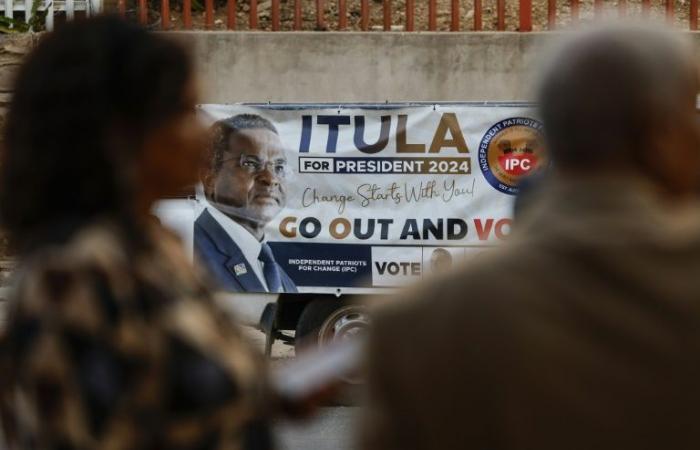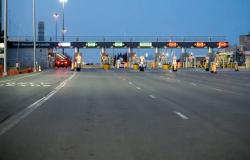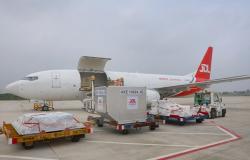The party in power in Namibia since independence faces its most uncertain elections on Wednesday and its candidate Netumbo Nandi-Ndaitwah, in a position to become the country’s first female president, could be forced into an unprecedented second round.
The ballot boxes, blue for the presidential election, yellow for the legislative elections, must be filled from 7:00 a.m. (05:00 GMT) to 9:00 p.m. (7:00 p.m. GMT) local time according to the votes of the 1.5 million registered voters, whose counting is expected at the most late Saturday, according to the elections commission.
Nicknamed “NNN”, the candidate of the ruling party, Swapo, who at 72 years old experienced the struggle for liberation, faces competition from the former dentist and lawyer Panduleni Itula. In 2020, he founded his own party, the Independent Patriots Party (IPC).
Massive unemployment, persistent inequalities and generational renewal have eroded support for Swapo in this desert territory of southern Africa, one of the world’s leading suppliers of uranium.
A 67-year-old Swapo dissident, Panduleni Itula won 29.4% of the vote in the previous presidential election without a party to rely on. The late President Hage Geingob was re-elected with 56% of the vote.
“This day promises to be that of the youth who must change the governance of this nation,” he told his supporters on Saturday during a meeting in the north of the country.
If the legislative elections are held proportionally, a second round of presidential elections is for the first time a “fairly realistic option”, according to Henning Melber, researcher at the Nordic Africa Institute in Uppsala (Sweden).
This must be held within 60 days following the announcement of the final results, at the latest, according to electoral law.
“I hope for change because some political leaders are corrupt,” said Onesmus Nanyemba, 27, who works in finance and came as a “neutral” voter to the Swapo meeting in Windhoek on Sunday.
“The abundant mining activity does not really translate into improved infrastructure or employment opportunities,” observes independent analyst Marisa Lourenço. Which “fuels a large part of the frustration of young people”, 46% of 18-34 year olds were unemployed in 2018, according to the latest official figures published.
After three decades of rule by Swapo, a Marxist-inspired movement from the time of the struggle, Namibia remains, after South Africa, the second most unequal country on the planet, according to the World Bank.
– Regional clearance –
The South West African People’s Organization (Swapo), which fought for the independence of the country, under the yoke of apartheid-era South Africa until 1990, may fear the same fate as its liberation parties. brothers in the region.
A wind of change has been blowing in recent months across the south of the African continent with its very young population. In the wake of the electoral setback of the ANC in South Africa, dispossessed of its absolute majority, the BDP in power since 1966 in Botswana was swept away.
Without forgetting weeks of fierce protest in Mozambique after the proclaimed victory of Frelimo, the party in power since independence in 1975, in elections marked by numerous irregularities according to international observers.
These parties no longer have the same appeal among “born frees”, these young people born after the liberation of their country. Like the rest of the continent, Namibia has a youthful population: 63% of its 3 million inhabitants are under 30 years old.
“It’s not just that they are young and have not experienced liberation, it’s that they are bearing the brunt of the effects of the economic crisis,” observes Nic Cheeseman, specialist in African politics. at the University of Birmingham.
“The problems affecting Namibia, like other African countries, are radically changing the political landscape; elections now focus on basic livelihood issues,” analyzes Tendai Mbanje, researcher at the African Center for Governance, for AFP .
This is why “NNN” promises in its program the creation of more than 250,000 jobs in five years. But Netumbo Nandi-Ndaitwah warned on Sunday during his final meeting that “the business world can only prosper if politics is stable”.
Do you have a real estate project in mind? Yakeey & Médias24 help you make it happen!






